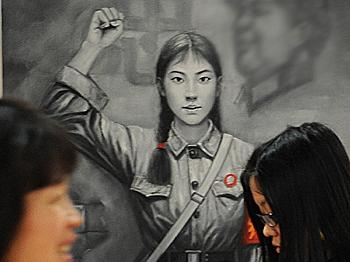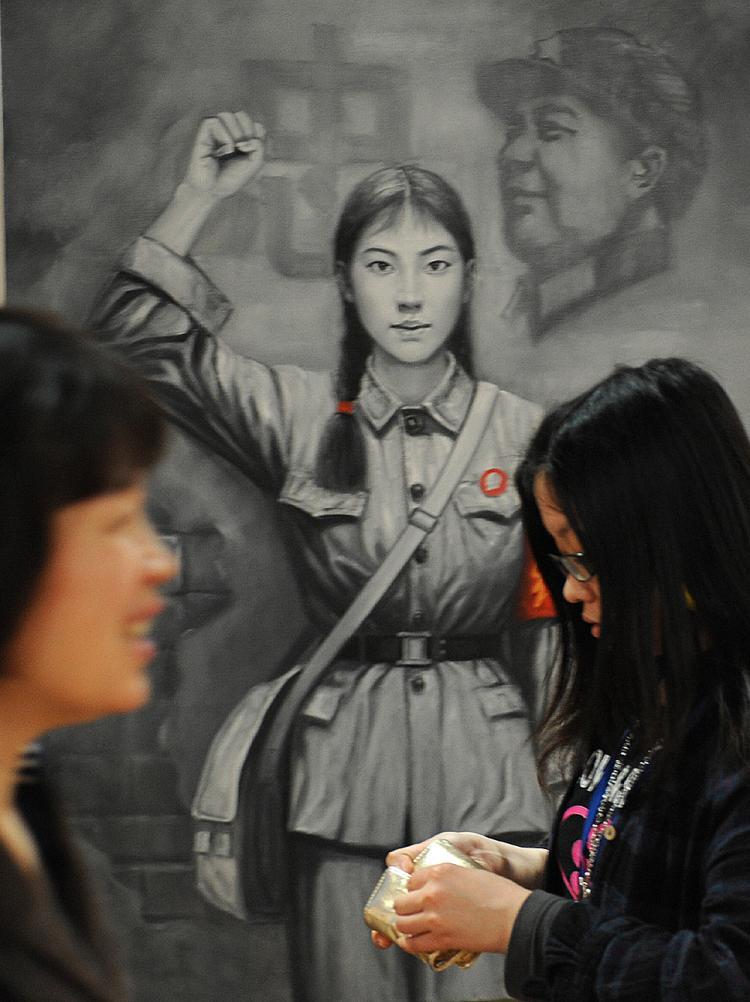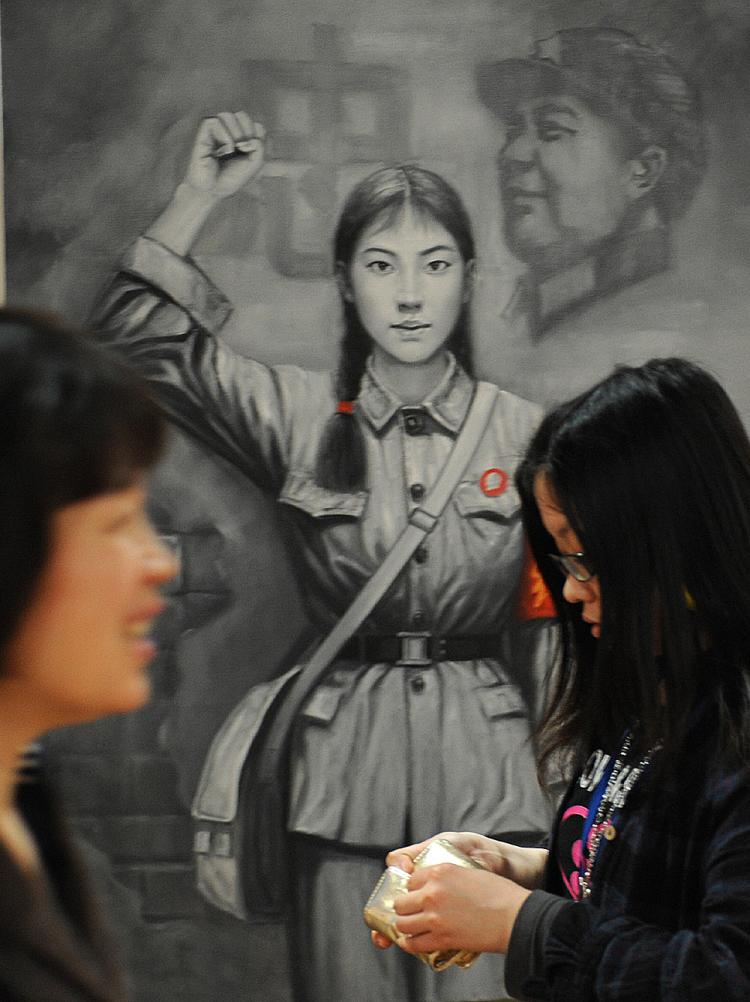A gun battle between two student cliques just ended, and Susan Liu, who was still in her teens, was taken by a friend to see the aftermath. The bodies were piled into the school lecture hall as an example, where they laid bleeding in large tubs filled with preservatives.
After seeing the exhibit, Ms. Liu’s group gathered to discuss how they would retaliate. “During these discussions, I would palpitate with fear,” she said. “It was all discussing how to kill people.”
Now 59 years old and living in New York, Ms. Liu recalled her years spent in service of the Chinese regime. Although she moved to the United States in 1988 and renounced her membership from the Chinese Communist Party (CCP) in 2004; she was once a Red Guard—one of the tools used by the CCP in its violent revolutions.
“Groups of students would just get guns and shoot each other. There would be bodies everywhere,” said Ms. Liu through a Chinese interpreter. “They would get the dead bodies and put them in the town square and make everyone come see it.”
“This would generate more hatred. People wanted revenge and there would be more killings,” said Ms. Liu. “Every major city had such blood baths.”
Students were killing students, landlords were hunted down as rightists, and religious believers were publicly bashed for engaging in superstition. It was the 1960s in China, in the heat of the Cultural Revolution—one of many such movements when the CCP was still establishing its rule.
The movement, initiated by Mao Zedong, aimed to destroy traditional culture and to establish a new one—one of communism and atheism. In the 10 years of the movement, more than seven million people were killed.
“The harder you beat up or struggled against your fellow man, it was a show of how loyal you were to the party,” said Ms. Liu. “It was judged by this.”
“My family was traditionally anti-party,” she said.
Her grandmother, who was a wealthy landlord, was beaten to death in the earlier years of the CCP’s rule. Rumors were spread that her mother inherited the money, so she and her family had to leave the town she grew up in and change their names. Her father was labeled a rightist for knowing how to read and write and was also forced to flee.
“If you don’t go along with their sense of history, they will destroy your family and turn your life upside down,” said Ms. Liu.
“The propaganda departments all work in the service of the Party,” she said. When an assignment came in, they would scan the documents and pick out points that praise the CCP. If they did well, they would get promoted. If they said negative things about the regime, they would go to jail.
“I knew at the time that it was all fake and meaningless, but there was no choice. If you didn’t do your job well you would get fired, so everyone lied together,” she said. “If you lied well you would get rich.”
“It is kind of like a dream—how I made it through all those years.” she said. “It is terrifying how people today still believe what the CCP says, and they’re still lied to.”
After seeing the exhibit, Ms. Liu’s group gathered to discuss how they would retaliate. “During these discussions, I would palpitate with fear,” she said. “It was all discussing how to kill people.”
Now 59 years old and living in New York, Ms. Liu recalled her years spent in service of the Chinese regime. Although she moved to the United States in 1988 and renounced her membership from the Chinese Communist Party (CCP) in 2004; she was once a Red Guard—one of the tools used by the CCP in its violent revolutions.
“Groups of students would just get guns and shoot each other. There would be bodies everywhere,” said Ms. Liu through a Chinese interpreter. “They would get the dead bodies and put them in the town square and make everyone come see it.”
“This would generate more hatred. People wanted revenge and there would be more killings,” said Ms. Liu. “Every major city had such blood baths.”
Students were killing students, landlords were hunted down as rightists, and religious believers were publicly bashed for engaging in superstition. It was the 1960s in China, in the heat of the Cultural Revolution—one of many such movements when the CCP was still establishing its rule.
The movement, initiated by Mao Zedong, aimed to destroy traditional culture and to establish a new one—one of communism and atheism. In the 10 years of the movement, more than seven million people were killed.
“The harder you beat up or struggled against your fellow man, it was a show of how loyal you were to the party,” said Ms. Liu. “It was judged by this.”
The Early Days
From the beginning of the Chinese communist revolution in 1949, the younger generations were regularly used to persecute the older generations. School books, and communist propaganda were used as tools of indoctrination.
“A lot of times the children would beat up their parents if they believed their parents were anti-revolutionary,” said Ms. Liu. “This was the extent of the brainwashing.”“My family was traditionally anti-party,” she said.
Her grandmother, who was a wealthy landlord, was beaten to death in the earlier years of the CCP’s rule. Rumors were spread that her mother inherited the money, so she and her family had to leave the town she grew up in and change their names. Her father was labeled a rightist for knowing how to read and write and was also forced to flee.
“If you don’t go along with their sense of history, they will destroy your family and turn your life upside down,” said Ms. Liu.
A Propaganda Machine
Through her years as a Red Guard, following the Cultural Revolution, Ms. Liu was promoted to different positions in the Provincial Party. She later became an executive of one of the regime’s media propaganda departments in Shaanxi Province.
“Their rule was one of brainwashing the masses and controlling the media,” said Ms. Liu. “The propaganda would confuse loving the party with loving the country, to mix patriotism for China with patriotism for the CCP.”“The propaganda departments all work in the service of the Party,” she said. When an assignment came in, they would scan the documents and pick out points that praise the CCP. If they did well, they would get promoted. If they said negative things about the regime, they would go to jail.
“I knew at the time that it was all fake and meaningless, but there was no choice. If you didn’t do your job well you would get fired, so everyone lied together,” she said. “If you lied well you would get rich.”
“It is kind of like a dream—how I made it through all those years.” she said. “It is terrifying how people today still believe what the CCP says, and they’re still lied to.”







